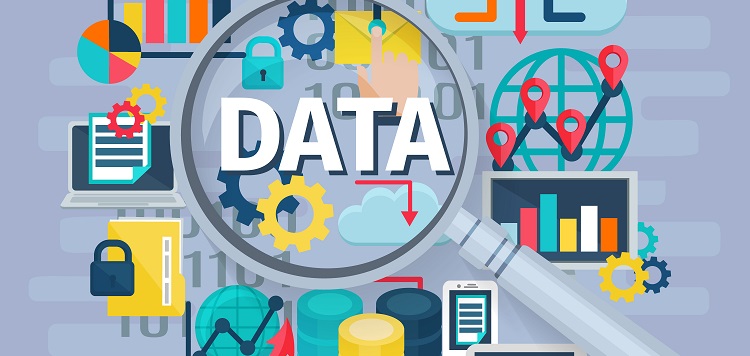Making decisions is an essential part of our daily lives. Every day, we are required to make a variety of choices, from small ones like what to wear or what to eat, to significant decisions that can impact our lives for years to come. To make good decisions, we need access to reliable and accurate information that we can analyze and use to support our choices. In today’s data-driven world, data is becoming increasingly essential in decision-making. In this article, we discuss the importance of data and data literacy in decision-making and achieving success.
Challenges in Making Good Decisions
Many people struggle with making good decisions that can positively impact their lives, careers, and businesses. This can be due to various factors such as a lack of information, inability to analyze data correctly, or even a lack of confidence in decision-making. Making sound and informed decisions is crucial to personal and professional growth and success. Without the ability to make good choices, we are likely to miss opportunities, fail to address challenges or risks, and make costly errors.
The role of data in decision-making
Data is a critical component in making informed decisions. It provides us with information that can help us identify trends, patterns, and insights to support our decision-making. In today’s world, we’re generating larger amounts of data than ever before. With the help of technology, data is now more easily accessible, enabling us to make better-informed decisions quickly.
Data also plays a vital role in risk management, making it easier to identify potential risks and create contingency plans to minimize their impact. For instance, in the financial sector, data is used to predict market trends, analyze customer behavior, and create investment strategies.
Access to Data and Data Literacy
Access to reliable and accurate data is crucial for making informed decisions. To make effective decisions, it is essential to have access to data from different sources and to have the necessary tools to analyze this data effectively. As such, data literacy is becoming increasingly crucial for everyone, from individuals to businesses to governments.
Data literacy involves the ability to read, analyze, and interpret data, as well as apply the insights gathered from it. It enables individuals to make informed choices, generate insights that can improve processes, and create new opportunities. Having solid data literacy skills will help us excel in our current job roles and give us the necessary skills needed for career growth and job security in the future.
The Need for Data-Literate Individuals
The demand for individuals who can work with data is growing daily. As the world becomes more data-driven, organizations need people who can work effectively with data to gain insights and make informed decisions. According to a recent report by IBM (citation needed), data-related jobs in the US alone are set to increase by 15% over the next ten years. This highlights the need for more people to have data literacy skills.
Beyond Technical Skills: Critical and Strategic Thinking
Technical skills alone are not enough to succeed in the data-driven world. To be a truly effective data-literate individual, critical and strategic thinking skills are also essential. Critical thinking skills involve the ability to analyze ideas and concepts independently, while strategic thinking skills involve the ability to consider and evaluate long-term objectives and goals. Developing these skills helps data-literate individuals identify patterns and trends that others might overlook, generate new insights, and make informed decisions that can drive success.
The Importance of Data-Literate Employees for Businesses
Businesses need employees who can use data to gain insights into customer behavior and preferences, market trends, and company performance. Data-literate employees can make better-informed decisions that can improve the organization’s performance and profitability. They can also help identify areas for improvement, create new products or services, and identify new opportunities that might have been previously overlooked.
The impact of tactical decisions
Tactical decisions made by experts within organizations can often have a profound impact on the organization’s success. These decisions involve assessing data and information related to a particular issue or challenge, working to identify potential solutions, and then selecting the best course of action. Tactical decisions can be related to specific departments or projects, with each decision having an impact on the success or failure of the entire organization. Effective decisions require access to accurate and relevant data, as well as the appropriate skills and expertise to analyze and interpret this data correctly.
Enhancing data literacy curricula
Educational curricula are crucial in developing data literacy skills, so it is essential to promote strategic and critical thinking in data literacy education. By doing so, experienced data experts can gain more insights and become even more significant assets to organizations. Organizations can also fill more roles internally, reducing the need for outside sources to manage data and processes that require expertise. This can offer protection against risks such as data breaches, business disruption, and costly mistakes.
Recognition of the value of data literacy
Today, both governments and corporations are recognizing the importance of data literacy in achieving success. The value of data literacy is reflected in the growing number of organizations that are investing in data literacy training for their employees. These companies understand that data is an asset and possessing data literacy skills can help to drive better performance and lead to success.
Data literacy is rapidly becoming one of the most critical skills for success in today’s world. Data has become a critical component in decision-making, and data-driven insights are now a fundamental part of business intelligence. By enhancing data literacy curricula and promoting strategic and critical thinking in data literacy education, businesses can increase their chances of achieving success. We need to embrace data literacy and develop the necessary skills to thrive in today’s data-driven world.

